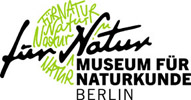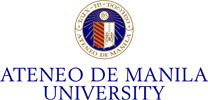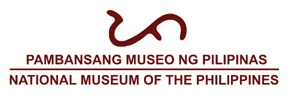Program
The scientific program of SAGE 2022 will comprise open sessions, thematic symposia (see below), and a poster session with a preceding oral 'quickfire poster session' (see Presentation Guidelines page for details). The full conference program will become available here after the abstract review process has been completed (not before June 2022).
Symposia
For more information on the five symposia held at SAGE 2022 please click on the triangle in front of the symposium titles.
Organizer: Thomas von Rintelen (naturalhistory@sage2022.org)
SE Asia harbors many fascinating organisms with interesting and sometimes outright weird traits. This session will offer you the opportunity to present natural history miscellanea
that will not warrant being delivered in a full-length talk and would otherwise go unreported at the meeting. If you have an observation or results on some interesting facet of an organism or a
group or organisms - phenotypic traits, behaviour, distribution, etc., - tell us about them in a short 5 min presentation.
Session: Natural History Stories
..................................
Symposium: Lepidoptera diversity and evolution in Southeast-Asian - new insights and old challenges
Organizers: Christoph Häuser, Theo Léger (lepidoptera@sage2022.org)
Keynote speaker: Emmanuel Toussaint, Natural History Museum, Geneva
South-East Asian Lepidoptera, especially butterflies, have been under the limelights since the pioneer work of Alfred Russell Wallace on biogeography, largely based on the study of the charismatic giant birdwings. This led the path for following scientists to work on evolutionary mechanisms like speciation, sexual selection, mimicry and aposematism. Many taxa display their largest diversity worldwide in the region and Lepidoptera account for a significant component in the overall species richness in South-East Asia, with a large fraction awaiting to be formally described.
New approaches using modern technologies and tools now provide unprecedented opportunities to revisit some of classical research questions, and also allow to address new questions with more comprehensive datasets. From high throughput genome sequencing, mass digitization of literature and museum specimens to the rapid and global sharing of digital observations through social media, the scientific data generated on Lepidoptera reaches an unprecedented level, especially for the SE-Asian region. This session will feature new insights on the phylogeny and evolution of important Lepidoptera groups, innovative approaches for conservation research relying on citizen science initiatives, and actual results from current faunistic fieldwork and taxonomic revisions.
..................................
Symposium: Biodiversity and Ecology of Peat Swamp Forests and Freshwater Swamps
Organizers: René Dommain, Janice Lee, Alex Cobb (peatswamps@sage2022.org)
Keynote speaker: Emmanuel Toussaint, TBA
Peat swamp forests and freshwater swamps are some of the most endangered ecosystems in Southeast Asia. The rapid disappearance of these wetland forests is causing not only the loss of vital ecosystem services relevant to both local communities and the global society, but also the permanent loss of a largely undescribed biological heritage. Peat swamp forests were originally perceived as species-poor environments, yet recent work has revealed a highly diverse fish fauna largely confined to the acidic blackwaters of peat forests. However, other components of the peat swamp forest biota are still poorly characterized, and the absence of comprehensive inventories precludes a better understanding of unique evolutionary and biogeographic phenomena, insights into the ecological interactions that drive peat formation, and the development of appropriate restoration measures. The widespread destruction of peat swamp forests and freshwater swamps leaves few refugia for the survival of their unique species assemblages, necessitating rapid assessments of the remaining populations of flora and fauna to support crucial conservation work. In this session we aim to bring together research on all aspects of the biodiversity and ecology of Southeast Asian peat swamps and freshwater swamps. We particularly welcome inventories of their biodiversity, including both terrestrial and aquatic biota, as well as phylogenetic, biogeographic, ecological and paleoecological studies. We also encourage contributions on restored wetland forests and studies that compare the biodiversity and ecosystem services of natural and converted peatlands to monoculture plantations especially oil palm.
..................................
Symposium: SE Asian aquatic and riparian insects
Organizers: Organizers: Hendrik Freitag, Jhoana Garces, Emmanuel Delocado, Arthien Pelingen, Boonsoong Bonsatien (aquaticinsects@sage2022.org)
Keynote speaker: Michael Balke, SNSB Munich
A considerable proportion of the insect diversity depends on aquatic ecosystems. Freshwater biodiversity predominantly constitutes insects. However, both freshwater systems and Insecta as a taxon do not receive the proportionate attention in science and society concerning their importance and the threats they are subjected to.
The decline in freshwater biodiversity exceeds those of the oceans and terrestrial systems, reflecting the threat posed by conflicting use and climate change to inland waters and coastal systems. These threats cause a higher degree of degradation or even local disappearance of inland water systems, partly owing to their interdependence with terrestrial systems. Aquatic insects are often lopsidedly perceived as vermin and vector species of diseases. While this is applicable for those mainly thriving in degraded and artificial aquatic habitats, most of the natural aquatic and riparian insect diversity in SE Asia is not even known to science. By extension, the ecosystem services they provide are thus widely unknown.
Aquatic insects are not only diverse in terms of species richness, but also in their patterns of ecological functioning, water-dependent life cycle adaptations, and functional feeding behavior. While aquatic insects are used for biomonitoring purposes even integral to industrial standard protocols in some parts of the world, the taxonomic basis for such applications is not established in SE Asia. Furthermore, distribution patterns and endemism are barely known in the region.
Through this symposium, we aim at facilitating exchange and networking among scientists working on any aspects of diversity, systematics, biogeography, evolution, and ecology of SE Asian aquatic and riparian insects. We also welcome contributions to aquatic insect conservation and applied aspects of limnological entomology.
..................................
Symposium: Overcoming the 'dark taxa' challenge: Species discovery 3
Organizers: Organizers: Rudolf Meier, Yuchen Ang, Thomas von Rintelen (speciesdiscovery@sage2022.org)
Keynote speaker: TBA
Global species diversity is still poorly known, with maybe 10-20% of species described. For megadiverse tropical regions, this is likely an underestimate given the high number of small-sized arthropods in hardly investigated taxa such as phorid flies. Such groups constitute 'dark taxa', which make up a significant proportion of diversity and biomass, and are likely crucial for maintaining ecosystem function. The unprecedented biodiversity crisis, not least in the rapidly developing SE Asian region, requires unbiased identification of hotspots; knowing species and their traits crucial for sustainable use and giving value to the preservation of biodiversity.
In this session, we aim to discuss urgent needs and solutions for overcoming the dark taxa conundrum and this biodiversity discovery in general. A major focus will be on technological tools for speeding up sorting of samples, species discovery and enabling large-scale monitoring in rapidly evolving field such as genomics, AI, and imaging. We feel that this is particularly apt to be discussed in Southeast Asia with the SE Asian biodiversity research community, as a major shift from the traditional approach of western-led expeditions and subsequent analyses in western countries and institutions is urgently needed. New financially frugal technological developments open up a perspective for the decolonization of taxonomy and entering an age of truly global collaborative effort to establish taxonomy as mega science. We also welcome contributions on enabling citizen participation in species discovery and monitoring as well as making biodiversity information accessible in the widest sense beyond the limited sphere of experts.
..................................
 |
 |
 |
 |